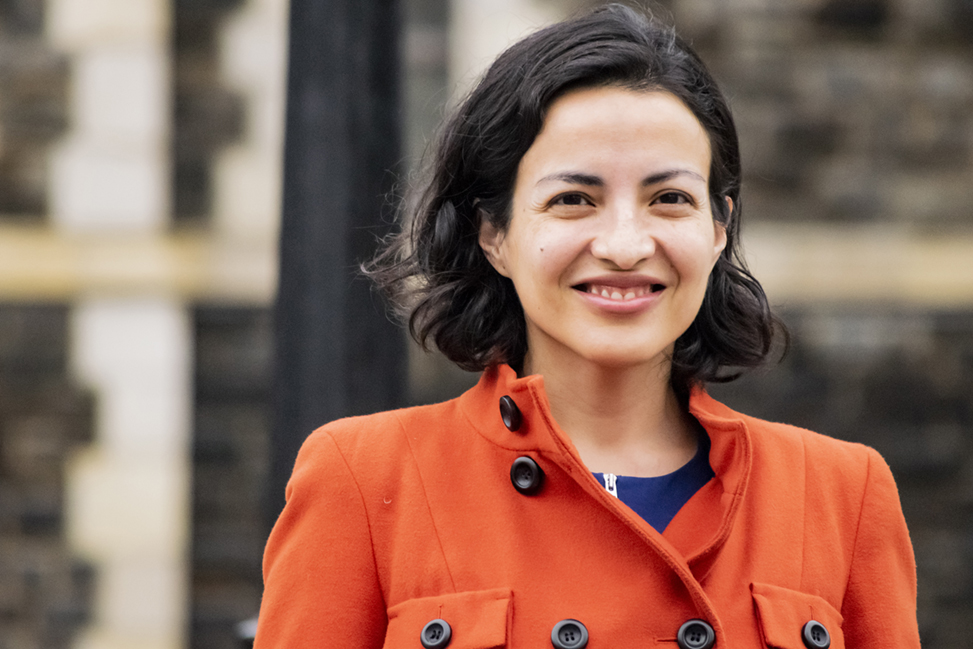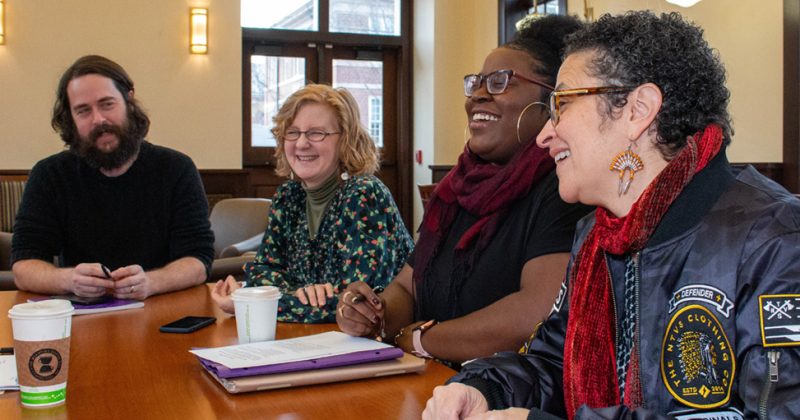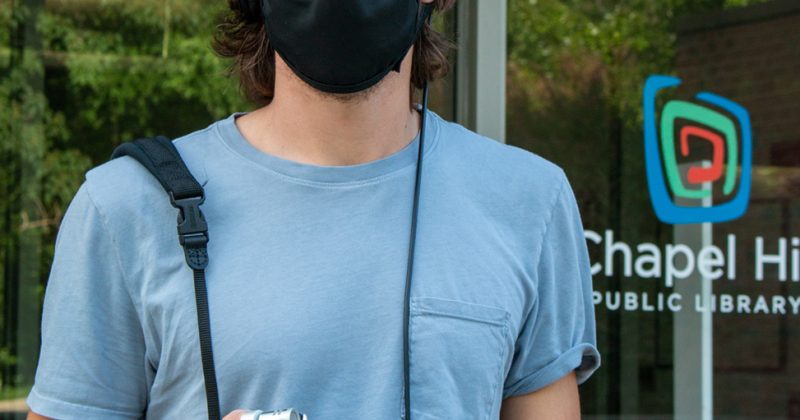
“I am committed to the transformative mission of public education,” Jennifer Morton says about her work to support first-generation and disadvantaged college students. (photo by Joann Huang)
Philosopher Jennifer Morton focuses on grit, resilience and effective ways to support disadvantaged college students.
On the first day of class each semester, associate professor of philosophy Jennifer Morton tells her students that she is the first person in her family to graduate from college. In doing so, Morton makes a connection with the students she defines as “strivers,” students seeking upward mobility through education.
Education is what led Morton, now a core faculty member in UNC’s Philosophy, Politics and Economics Program, from her native Peru to Princeton University for her bachelor’s degree.
At Princeton, in addition to gaining academic knowledge, Morton learned about U.S. culture through the lens of an Ivy League school.
“Even though I had access to the many resources offered by Princeton, I had the feeling of being an outsider, having to make decisions on my own, since my family hadn’t attended college and couldn’t guide me,” she said.
After earning her doctorate at Stanford University, Morton became interested in the philosophy of education, particularly the ways in which class and race shape educational opportunities.
“That helped me start to think differently about my own college experience,” Morton said. “I had the language and ability to reconceive my undergraduate years through a new lens, seeing that mine was a common experience for first-generation college students.”
She brought that understanding to her book, Moving Up without Losing Your Way (Princeton University Press, 2019).
“For strivers, seeking opportunity through education often comes at a cost in terms of remaining connected to friends, families and communities,” said Morton, whose research focuses on grit, resilience, higher education upward mobility and disadvantaged college students. “For the book, I interviewed people who were professionals who had ‘succeeded’ but felt regret, guilt and complicated feelings about what they had to give up in the process.”
Before joining Carolina in January 2020, Morton saw these challenges firsthand in her students at City University of New York, where she taught for 10 years after two years teaching at Swarthmore College.
“The CUNY student body tends to be mostly minority with a significant percentage coming from families that earn less than $20,000, which for NYC is very low,” Morton said. “Many of the students are immigrants or children of immigrants who come from all parts of the world.”
At UNC, Morton uses the lessons she has learned about inclusive teaching to ensure she reaches all students. Her research convinced her that if she replicated the kind of teaching that she received, in which the professor merely lectured, she would exacerbate the inequities that students bring into the classroom.
“I try to create a classroom community because students are quite responsive when they see their professor is committed to reaching as many students as possible,” she said.
Last spring, before the pandemic hit, she took her students to see the film Little Women. “They were excited to be out at night with their professor and that created an experience we could bond over.”
She targeted last spring’s First Year Seminar, “Self: Transformation and Aspiration,” to first-generation and low-income students who are strivers.
“My goal was to help the students think about what kind of transformation they were expecting to undergo and what that would mean for them,” she said.
Morton was drawn to Carolina because of the caliber of the philosophy department, her commitment to public education and her interest in learning more about rural first-generation students.
“Because of the Carolina Covenant, there is a significant proportion of low-income and first-generation students at Carolina, which appeals to me because I am committed to the transformative mission of public education,” she said.
By Michele Lynn
Published in the Fall 2020 issue | Tar Heels Up Close
Read More

Grow your reading list: More books by College faculty and alumni (fall 2020)
If I Had Two Wings: Stories (W. W. Norton &…

Southern Futures: Voices of resilience and recovery in Robeson County
Diamond Holloman is fascinated with what she calls the “sister…


